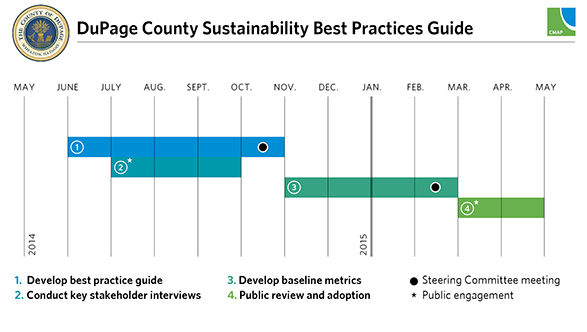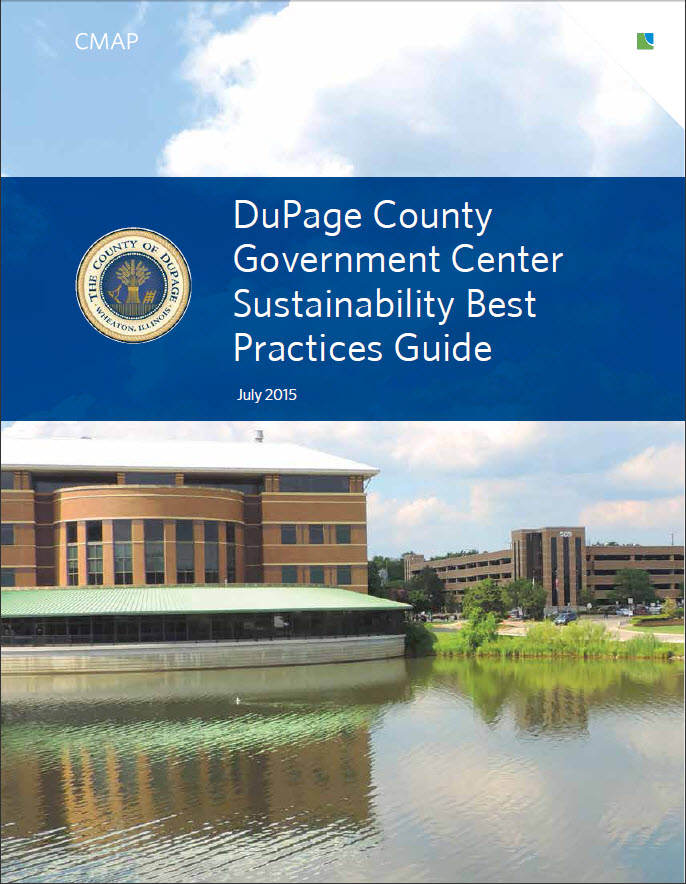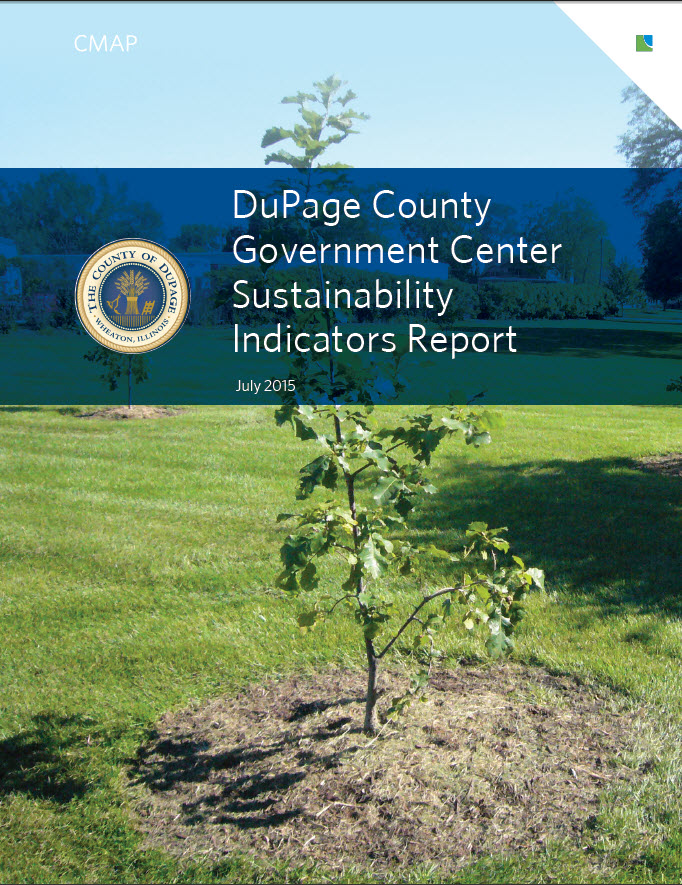The DuPage County government has implemented many activities to green its Government Center county campus. Initiatives addressing energy efficiency, pollutant runoff, native landscaping, and low-carbon fuels have already improved the sustainability of Government Center facilities and practices. Straddling Wheaton and Winfield, the 190-acre campus presents significant opportunities to employ more sustainable practices for land management, building efficiency, waste management, procurement, and more.
To identify more robust sustainability strategies that the County can undertake, the County government developed a DuPage County Sustainability Best Practices Guide with support from CMAP's Local Technical Assistance (LTA) program. The guide builds off of the County's past and existing efforts to highlight innovative best practices in green building, water conservation, environmental health, ecosystem management, transportation, and educational programs from other campus institutions. The Guide includes a description of each best practice and its benefits, potential barriers that might exist to incorporation, action steps to overcome the identified barriers, and resources for moving forward. The County government is able to use practices from this guide to guide and inform future sustainability directions, priorities, and decision-making for the County campus. As a compendium to the guide, CMAP and the County developed an indicators report which establishes baseline metrics to help the County evaluate its progress in reaching its sustainability goals.


